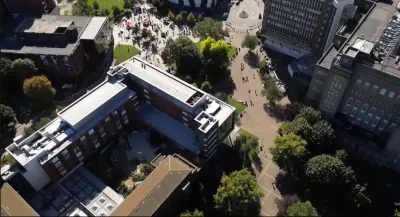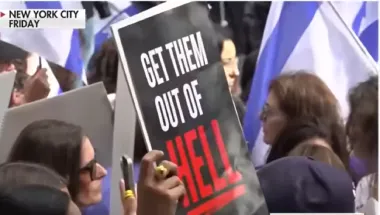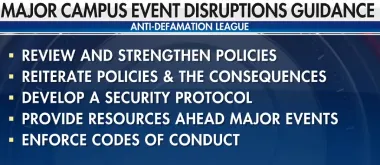Universities In The UK Want Students To Pay Higher Fees To Solve Funding Challenges.
Some of England’s leading universities are now calling for student tuition fees to be increased even further to address what they call a funding black hole. Currently, the fees for home students are capped at just over 9,000 pounds, making England one of the most expensive countries in the world to study for Bachelor’s degrees.
But the institutions say that’s not enough and it hasn’t kept pace with Rising costs causing them to fall into the red well they want funding per student to rise to £13,000 which could include an increase in tuition fees.
A correspondent of ITV reports that it’s the first week back for some University students in England and already the cost of tuition is the subject of debate, universities UK which represents 141 universities say funding needs to go up to between 12 and 13,000 pounds per student.
To balance the budget, Coventry University has had to make reductions, including staff job cuts.
.According to the chief academic officer, of Coventry University, Professor IAN DUNN said that “the cost of everything has gone up, the value and the amount of money coming in from student tuition fees has gone down, and the numbers of international students that cross-subsidize everything else has also gone down at the same time.”
Stacy Foster ITV News stated that tuition fees were first introduced at £1,000 per year under Tony Blair’s Labor government in 1998, rising to 3,000 in 2006, in 2012 The Tory LibDem coalition controversially raised fees to £9,000, but since 2017 fees have been fixed at £9,250 per year.
Universities are now calling on the government to increase its funding, but students may also be left to foot the bill.
One of the students mentioned that I wanted to be a detective and that I required a degree to do so. At the current price, I will try and be able to make adjustments and find a way for it to work, but if it had gone up, I believe it would have turned me off.
For those who have their sight set on higher education in a few years, talk of increasing costs has left them looking at other options.
Another student states that it is offered and has been explored as a degree apprenticeship option, but I believe that it will drive individuals to stay at home rather than travel because it will be much cheaper to stay at home. After all, you don’t have to pay any student living expenses.
According to a Coventry University student, many people pretend to think, “Oh, this debt will be a burden to me, so it would probably be better to go for an apprenticeship and do something I can get paid for.”
ALSO : UK Raises Financial Requirements for Nigerians and Other International Students 2024, PLUS MORE
Stacy Foster reports that the government says it’s inherited a challenging set of circumstances in higher education, However, if they are unable to fix budget shortages, certain universities may be forced to shut down.
University Student Calls On The Administration To Take Action On Campus Disruptions.
According to a report, former President Trump called on Vice President Harris to condemn anti-Semitism as a new wave of campus protests began this year.
ALICIA of Fox News adds that next week is the United Nations general debate, and ahead of that, we saw family members of Israeli-American hostages gather outside the UN. with supporters to call on member states to prioritize the release of hostages.
Do you feel that they are being heard?
Sabrina Soffer, a George Washington University student responded, “I really would urge the U.N. as they begin this new term to prioritize the hostage issue, and I do feel that in the Jewish community, they are being heard, but in the international community they are in there.
I think that they’re being ignored and this issue is being minimized. I do believe that the U.N. should make it a priority because hostages are being starved.”
I don’t know how many are alive, and the lack of condemnation of Hamas for what they are doing to these host acts and their hostages, and their civilians and Israeli civilians and destabilizing the entire region is absurd.
And the fact that they’re not prioritizing this issue is ridiculous and something needs to change.
This should be a moment of reckoning for the United Nations and all world leaders. She added
We continue to think about the families and hostages.
As you know, we are approaching the first anniversary of the October 7th attacks. Alicia adds
We also know here in the United States things are very fraught for Americans, A man from Canada was arrested for trying to come into the United States for men at a Jewish center in plans for a shooting at a Jewish center in Brooklyn.
We’ve seen university protests resurface after the summer, and while some campuses are attempting to keep protesters off campus, they’re still happening. How do you take it all?
How are you handling all of this as October 7th approaches?
Soffer maintains that Simply tagging from the preceding topic. According to Antonio Gutierrez, there needs to be a regional de-escalation.
University leadership is saying the same thing. They want to de-escalate campus tensions, and they want to bring peace to campus, but that’s not going to happen until you stop the source of that tension. Soffer added
According to Sabrina “The source of that tension is these campus protesters. if these groups are not suspended, if they’re not expelled, if fundamental falsification and fabrication of anti-Israel curriculum are not stopped,
And it will continue unless the group of protesters is held accountable and the university leadership is held responsible for covering it up.
I urge leadership to consider what happened last year. They do not want to go through the same experiences again. They need to take action this year, which involves deescalating the situation and addressing the root cause.”
The anti-defamation League came up with a list of recommendations on how to handle these disruptions,
Here is the list of the things
- universities should review and strengthen policies,
- reiterate policies and the consequences,
- develop a security protocol,
- provide resources ahead of major events and
- enforce codes of conduct.
ALSO: The Contribution of Science to Global Peace and Development
Alicia said. I’m not sure about you, but I believe that some of this kind of regulations and nothing exist in the anti-defamation league at all, but some of these rules were in place with these universities, and they seem to be able to handle the situation.
Soffer expresses that the reason that these universities are not able to handle the situation is that they’re not establishing deterrence measures. GW, for example, has implemented new policies and enforced them by suspending the SJP and JVP.
- These are the groups who are responsible for the campus tensions and protests.
- These groups are extremely well-organized, and they are constantly reorganizing and reconstituting themselves as outside groups, repeating the same practice.
- If these students are not expelled, if the professors are not held accountable, nothing will change.
- There must be some form of incentive for these university administrators to act, one of which being the removal of federal funds from universities that continue to cover up for antisemitism or refuse to hold people accountable for it.
- Another option is to withdraw tax-exempt status. Something must come from higher up to ensure that university leadership takes action.
Things below that level, however, will not work. Forcing security measures and such is fine, but nothing will change unless something is done to create an incentive for the administrator to genuinely take action.










hentairead For the reason that the admin of this site is working, no uncertainty very quickly it will be renowned, due to its quality contents.